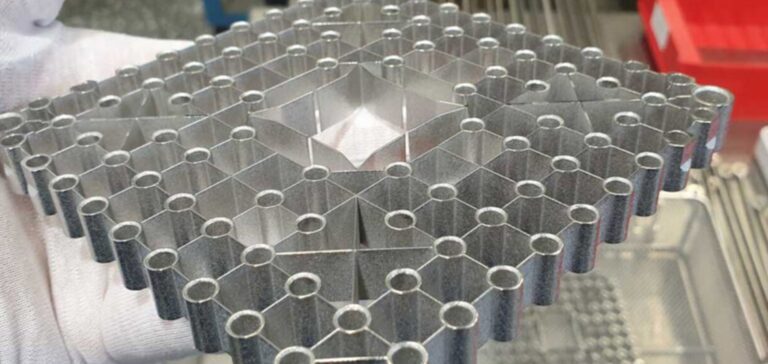Framatome has made a major breakthrough in the development of the molybdenum-uranium (U-Mo) monolithic fuel for the Forschungsreaktor München II (FRM II) research reactor, located in Germany and operated by the Technical University of Munich (TUM). This low-enriched fuel has the highest density ever achieved in Europe for the operation of research reactors.
Innovative fuel in record time
Framatome’s CERCA research and innovation laboratory, in collaboration with TUM, developed the main component of the high-quality U-Mo fuel and manufactured a prototype, while establishing a qualification procedure and installing a pilot line in record time, all within the initial budget. This innovative fuel will allow the FRM II to maintain its high level of performance with less enriched uranium, thanks to its high uranium density.
François Gauché, vice president of the CERCA facility at Framatome, emphasized that “generating innovations for safe and reliable operation of research reactors is at the heart of our daily activities.” He also expressed his pride in the CERCA team’s delivery of a solution that meets the customer’s objectives and will ensure the continuation of its scientific activities.
The FRM II reactor will switch to less enriched uranium
The FRM II research reactor is currently fueled with highly enriched uranium to generate a dense neutron flux for scientific experiments and medical radioisotope production. However, TUM has been engaged for several years in a program to explore the feasibility of using low-enriched uranium fuel while maintaining good reactor performance. In 2019, the university has retained Framatome to develop a manufacturing technique for so-called U-Mo sheets.
The FRM II research reactor is a world-renowned reactor optimized for neutron scattering experiments and with irradiation facilities that produce doped silicon for renewable energy transition and radioisotopes needed for medical diagnostics and cancer treatments. The irradiation of the first prototype U-Mo monolithic fuel plate is scheduled for September 2023.






















